You are here: Home › News & Features › Stakeholder Involvement
Stakeholder Involvement
The Center for Sponsored Coastal Ocean Research (CSCOR) develops and improves predictive capabilities for managing the Nation's use of its coastal resources through competitive ecosystem research programs directed to the needs of regional stakeholders. These needs are determined through a comprehensive prioritization process involving input from multiple sources. Our process evaluates input received from Congressional direction, Administration priorities, NOAA mandates, NOAA strategic plans, and engagement of stakeholders including involvement of the scientific community. The goal is to identify and prioritize the impact-focused research efforts needed to improve predictions for our coastal ecosystems and which is within the mission for CSCOR. The following illustrates several of CSCOR's most recent efforts:
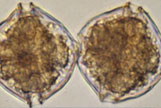
Regional Research Efforts Provide Transition Pathway to Operational Harmful Algal Bloom Forecasting for New England Coastal Managers
December, 2006 — On December 6th, 2006, the 3rd in a series of workshops sponsored by the ECOHAB (Ecology and Oceanography of Harmful Algal Blooms) program of the National Centers for Coastal Ocean Science (NCCOS), brought together key members of the scientific, federal and management community to develop an implementation plan for transitioning tools and predictive models of toxic harmful algal blooms (HABs) to an operational management capability. More...

Hypoxia Workshop Fosters Collaboration between Diverse Scientific Disciplines
September, 2006 — Improving management of hypoxic and contaminant effects on living resources in the Gulf of Mexico was the theme of a September workshop held at Tulane University in New Orleans. More...
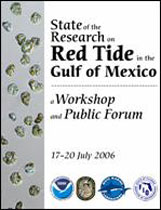
Red Tide Workshop & Public Forum Highlight Scientific History of Red Tide, Synthesize Current Research, and Identify Future Research Needs for the Prediction, Management, Control, and Mitigation of the Florida HAB species, Karenia brevis
July, 2006 — NOAA's National Centers for Coastal Ocean Science/Center for Sponsored Coastal Ocean Research (CSCOR) jointly sponsored a scientific workshop with Mote Marine Laboratory and the Florida Fish and Wildlife Research Institute, bringing together 75 national and international experts on Florida red tide and receiving significant press coverage. More...

Improved Reliability of Ecological Forecasts to Advance Decisionmaking of Resource Managers
July, 2006 — The Center for Sponsored Coastal Ocean Research (CSCOR) is sponsoring a workshop of national experts on modeling that will lead to methods of quantifying poorly understood uncertainties in a manner that managers can use in their decisionmaking. More...
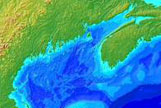
Modeling Needs for Ecosystem-Based Management in the Gulf of Maine Identified in Workshop Report
April, 2006 — The Gulf of Maine contains rich habitats that are affected by many human activities. To facilitate the coordination of marine research and monitoring in and around the Gulf of Maine, NOAA's Center for Sponsored Coastal Ocean Research supported the Modeling Needs Related to the Regional Observing System in the Gulf of Maine workshop in July, 2005. More...
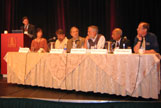
CSCOR Co-Sponsors Symposium to Identify Management Strategies for the Gulf of Mexico Hypoxic "Dead Zone"
April, 2006 — On April 25-27, 2006, the Hypoxia in the Northern Gulf of Mexico: Assessing the State of the Science Symposium took place in New Orleans, Louisiana. Co-sponsored by the National Centers for Coastal Ocean Sciences' Center for Sponsored Coastal Ocean Research (CSCOR) and the U.S. Environmental Protection Agency (EPA), the Symposium's goal was to assess the current scientific understanding of the causes and processes regulating the development, persistence and areal extent of the Gulf's hypoxic zone (also known as the "Dead Zone"). More...
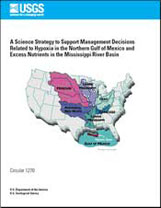
NCCOS Plans Scientific Reassessment of Gulf of Mexico Hypoxia
September, 2004 — The Mississippi River Basin/Gulf of Mexico Hypoxia Task Force approved a science reassessment plan to examine the causes and consequences of the dead (hypoxic) zone and nutrient reduction progress. A controversial paper released by EPA at the meeting, reported widely in the media and Science magazine, questioned the current focus on Nitrogen (N) reduction to improve hypoxia and suggested Phosphorous (P) may also be important. More...

